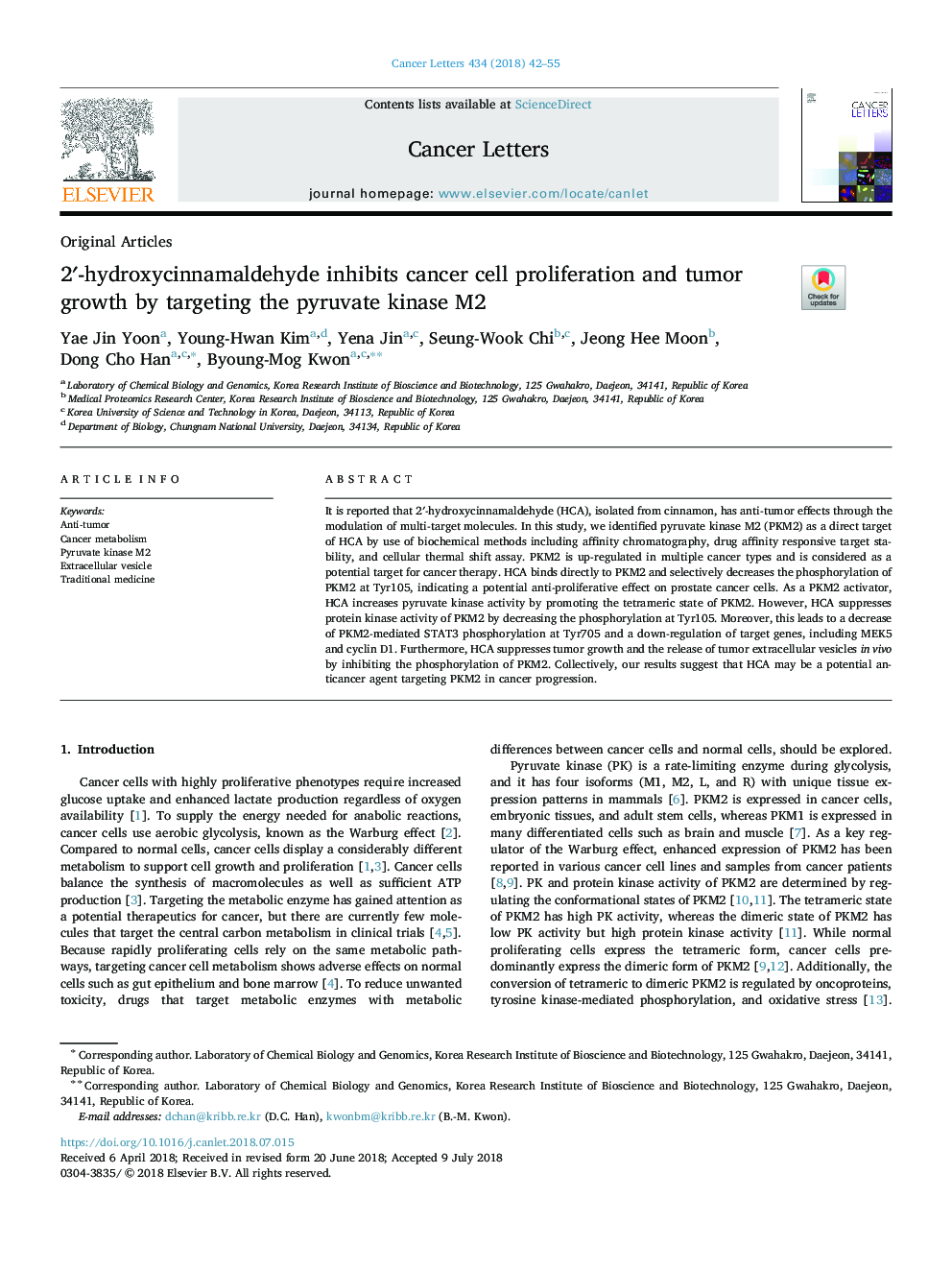| Article ID | Journal | Published Year | Pages | File Type |
|---|---|---|---|---|
| 8434114 | Cancer Letters | 2018 | 14 Pages |
Abstract
It is reported that 2â²-hydroxycinnamaldehyde (HCA), isolated from cinnamon, has anti-tumor effects through the modulation of multi-target molecules. In this study, we identified pyruvate kinase M2 (PKM2) as a direct target of HCA by use of biochemical methods including affinity chromatography, drug affinity responsive target stability, and cellular thermal shift assay. PKM2 is up-regulated in multiple cancer types and is considered as a potential target for cancer therapy. HCA binds directly to PKM2 and selectively decreases the phosphorylation of PKM2 at Tyr105, indicating a potential anti-proliferative effect on prostate cancer cells. As a PKM2 activator, HCA increases pyruvate kinase activity by promoting the tetrameric state of PKM2. However, HCA suppresses protein kinase activity of PKM2 by decreasing the phosphorylation at Tyr105. Moreover, this leads to a decrease of PKM2-mediated STAT3 phosphorylation at Tyr705 and a down-regulation of target genes, including MEK5 and cyclin D1. Furthermore, HCA suppresses tumor growth and the release of tumor extracellular vesicles in vivo by inhibiting the phosphorylation of PKM2. Collectively, our results suggest that HCA may be a potential anticancer agent targeting PKM2 in cancer progression.
Related Topics
Life Sciences
Biochemistry, Genetics and Molecular Biology
Cancer Research
Authors
Yae Jin Yoon, Young-Hwan Kim, Yena Jin, Seung-Wook Chi, Jeong Hee Moon, Dong Cho Han, Byoung-Mog Kwon,
